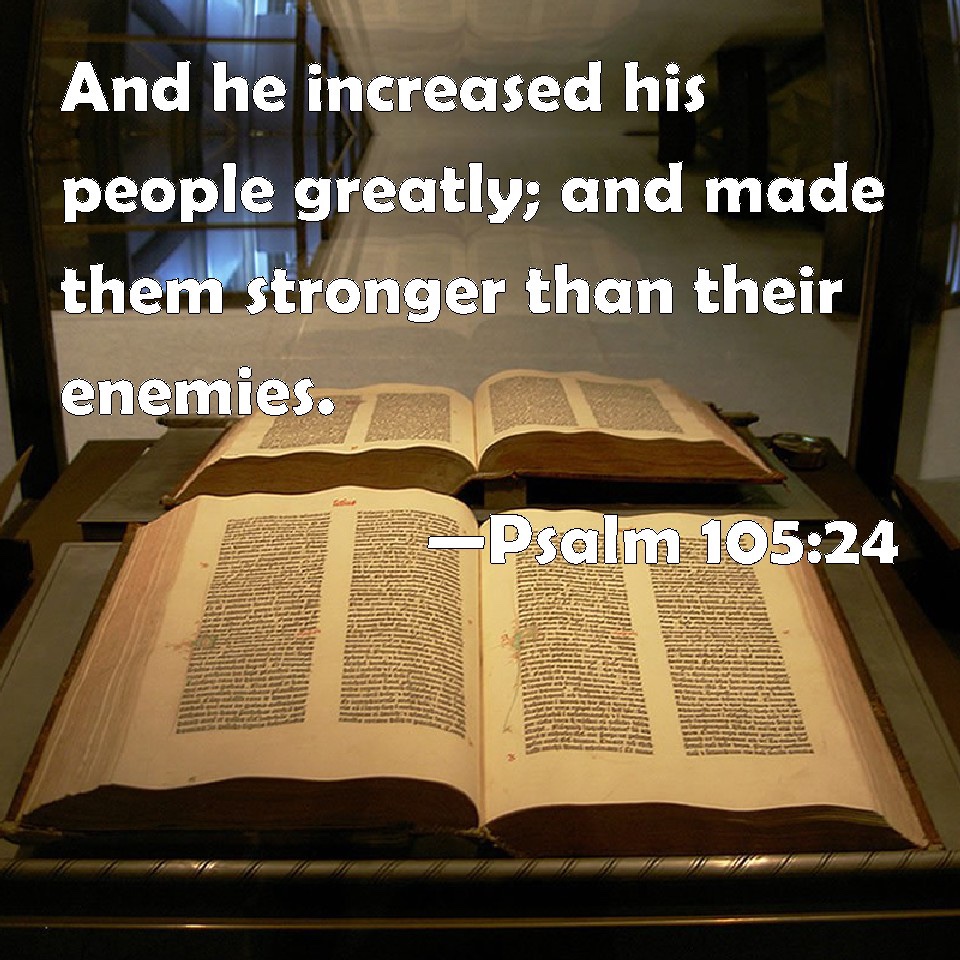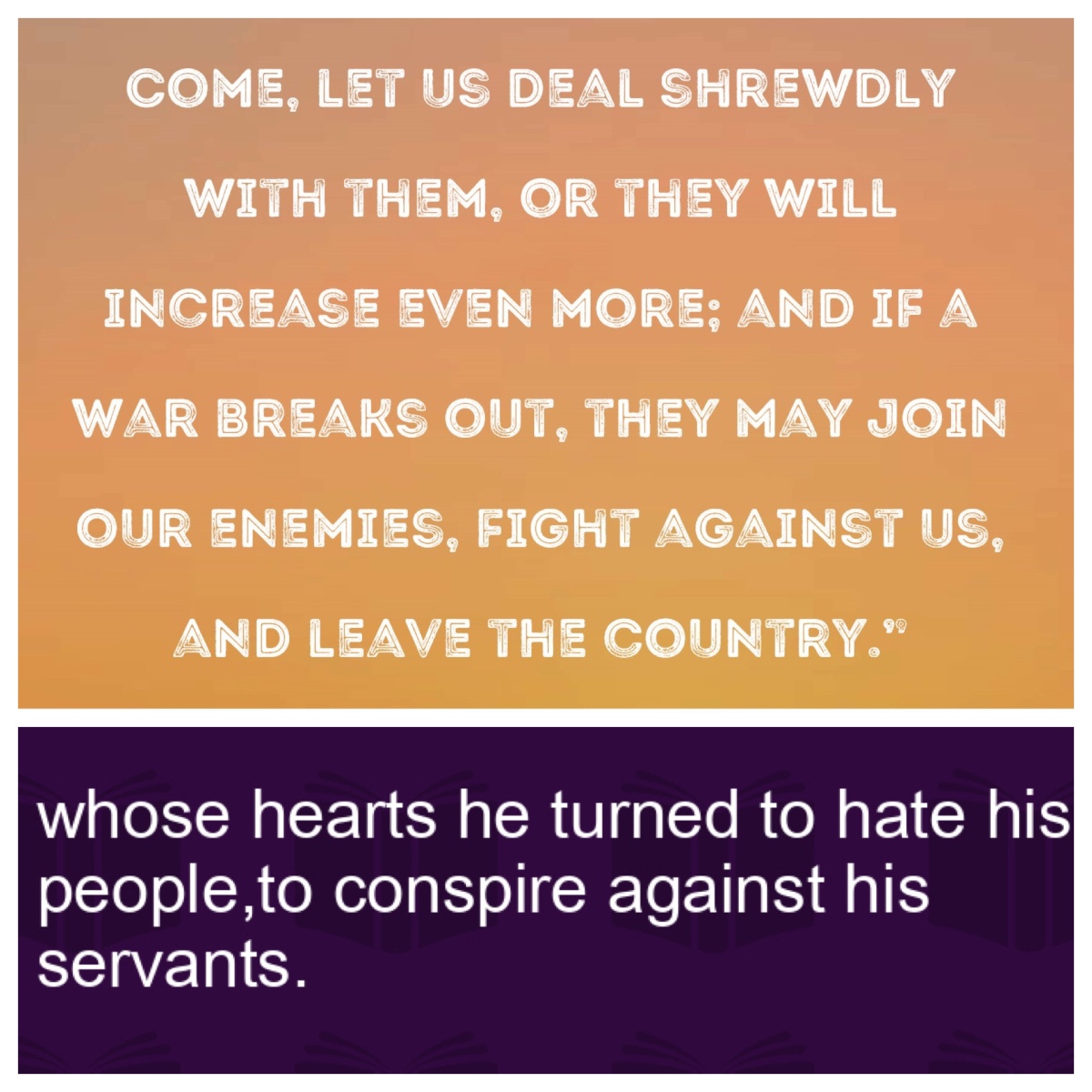“The Lord made his people very fruitful, and made them stronger than their foes, whose hearts he then turned to hate his people, to deal craftily with his servants” (Ps 105:24–25). These words appear in the psalm that is offered by the Revised Common Lectionary this coming Sunday (Ps 105:1–6, 23–26, 46b).

“Dealing craftily” is presented as something quite negative; a characteristic of the way that the “foes” of Israel deal with the “servants” of the Lord. The reference is made in the course of providing a summation of one part of the Joseph episode within the overall story of Israel that is told by this psalm.
In the course of the 45 verses of this psalm, there are summaries of key episodes in this story, from the ancestral covenant with Abraham, Isaac, and Jacob (vv.7–11), through the times involving the elderly Jacob, his sons, the famine in Canaan, and the rescue provided by Joseph in Egypt (vv.12–25), on to the period of Moses and Aaron (vv.26–36), the Exodus from Egypt and wilderness wandering (vv.37–42) and then the entry into the land of Canaan (vv.43–45).
This lyrical retelling of the story of Israel fits it well for singing on the first day of Passover, remembering the escape from slavery in Egypt. However, the portion offered by the lectionary this Sunday tells of a time prior to that, when “Israel came to Egypt; Jacob lived as an alien in the land of Ham” (v.23). Of that period, the psalmist sings that “the Lord made his people very fruitful” (v.24).
This presumably reflects the time after the severe famine in Canaan (Gen 43:1), when, after various machinations, Jacob and his family relocate to Egypt, and Joseph, having revealed his true identity to his family (Gen 45:1–5), “settled his father and his brothers, and granted them a holding in the land of Egypt, in the best part of the land, in the land of Rameses, as Pharaoh had instructed; and Joseph provided his father, his brothers, and all his father’s household with food, according to the number of their dependents” (Gen 47:11–12).
Of course, soon after this, famine hit Egypt as well (Gen 47:13). Joseph’s scheme for surviving the famine works (Gen 47:14–26), the country survives, and “Israel settled in the land of Egypt, in the region of Goshen; and they gained possessions in it, and were fruitful and multiplied exceedingly” (Gen 47:27). This bounty is reiterated in the opening chapter of Exodus, which declares that “the Israelites were fruitful and prolific; they multiplied and grew exceedingly strong, so that the land was filled with them” (Exod 1:7).

All of this is conveyed in the highly compressed summation of the psalm, “the Lord made his people very fruitful” (Ps 105:24). But then, according to the psalmist, the Lord turned the hearts of the Egyptians “to hate his people, to deal craftily with his servants” (Ps 105:25). This marries with the way that the narrative continues in Exodus, which notes that “a new king arose over Egypt, who did not know Joseph”, and so “they set taskmasters over them to oppress them with forced labour” (Exod 1:11).
The Egyptians are described as acting “shrewdly” (Exod 1:10). Is this the same as the psalmist’s note that the foes of Israel “dealt craftily” with them (Ps 105:25)? The Hebrew word used in the quasi-historical narrative of Exodus is chakam, which is most often translated as “act wisely”. Thus it is applied to Solomon (1 Ki 4:31), the simple who are made wise through “the decrees of the Lord” (Ps 19:7; so also 119:97–100), the instruction of Wisdom herself (Prov 8:33), and the activity (as whispily vain as it is) of the Preacher, Qohelet (Eccles 2:15, 19). The way the Egyptian treated the Israelites had a certain cunning involved—they acted with a canny, shrewd wisdom.
The Hebrew word chosen in the poetry of the psalmist’s song is nakal, “to be crafty, deceitful, or knavish”, according to Brown, Driver, and Briggs. This word is also employed in the Genesis narrative, when the brothers of Joseph plot to kill him. “Here comes this dreamer; come now, let us kill him and throw him into one of the pits”, they say (Gen 37:19–20), as he approaches them in his “long robe with sleeves” (Gen 37:3). Such behaviour is described in various translations as being a conspiracy or a plot—the translation offered here for nakal.
Attributing this mode of behaviour to the sons of Jacob should not surprise us—after all, they have inherited the DNA which has previously led their ancestors to lie, deceive, and even threaten to murder their own child! Remember: Abraham lying about his wife Sarah as his sister (Gen 12 and again in Gen 20) and threatening to sacrifice his own son (Gen 22); Isaac, who also lied that his wife Rebekah was his sister (Gen 26); and Jacob, the deceiver, who stole his birthright from his twin brother Esau (Gen 27) and then deceived his father-in-law Laban and profited from his flock (Gen 30–31). They are not exactly wonderful role models!
But the Exodus narrative attributes such “shrewdness” to the Egyptians, as the foes of Israel (Exod 1:10); a shrewdness that overlaps, as we have seen, with divinely-granted wisdom. The Egyptians were being wise in pressing the foreigners in their midst to work for them in their building projects. And no, they were not being used as slave labour to build the great pyramids of Egypt. Those structures are dated to “the Old Kingdom”, from 2686 until about 2160 BCE—well, well before any possible dating of the Israelites were in Egypt.
It’s interesting that the psalmist called out the Egyptians for what they saw them to be—shrewd, conniving, deceitful—whereas the Exodus story leaves open a sliver of possibility they the Egyptians were being shrewd and wise in the way they use (and, it would seem, greatly abused) the Israelites living in their land. Interesting.



